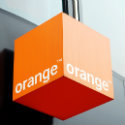
The latest rumors that Germany's Deutsche Telekom is eyeing a merger with France's Orange have acquired the iffy smell of an old Roquefort after the French operator swiftly dismissed a Handelsblatt story that cited sources in management ranks. "There is no project or discussion about a Deutsche Telekom-Orange merger," said a spokesperson for the operator.
The operators' reasons for combining would not be hard to fathom. The two operators already jointly procure some equipment and services and have teamed up on various initiatives, including the development of a smart speaker (branded Djingo by Orange and Magenta by Deutsche Telekom). In these areas, a full-on merger could promise cost savings and give the two companies a bigger R&D punch.
A combination, more importantly, would create the kind of telco giant that Europe lacks and so desperately needs, according to critics who regularly draw unfavorable comparisons with less competitive US and Chinese markets, home to massive players such as AT&T and China Mobile. A European equivalent might steer the region more speedily toward the sunlit uplands of 5G.
Regulation would be an obstacle because both companies operate networks in eastern European markets such as Poland, Romania and Slovakia. That said, Orange's biggest European markets are France and Spain, while its fastest-growing are in Africa. Deutsche Telekom has no presence in any of those countries and is interested in selling its Romanian assets, according to press reports.
The chief barriers to a tie-up remain financial and organizational, as they did in January 2018, when Orange was last forced to play down merger talk. "Nobody has proven that big consolidation is value creating," said Gervais Pellissier, one of Orange's deputy CEOs, at the time.
One problem he acknowledged then was the huge difference in market capitalization between Deutsche Telekom and Orange. That situation would inevitably mean a takeover of Orange by Deutsche Telekom, as opposed to a strict merger. "That would not please many people in France," said Pellissier, referring to the political opposition the acquisition of a partly state-owned business would encounter.
For all the latest news from the wireless networking and services sector, check out our dedicated Mobile content channel here on Light Reading.
None of this has really changed. Orange's market capitalization is currently about €40 billion ($44 billion), while Deutsche Telekom is valued at nearly €73 billion ($80 billion). Significant chunks of both companies remain in public-sector hands.
Integrating networks supplied by different vendors and workforces who speak different languages could be a Franco-German nightmare, especially if new German managers decide the redundancy guillotine should fall mainly on the Orange side of the business.
Nothing is impossible -- and this year has been one of repeat surprises on the news front -- but a merger between Deutsche Telekom and Orange remains about as likely a prospect as an odorless Roquefort.
Related posts:
— Iain Morris, International Editor, Light Reading
Read more about:
EuropeAbout the Author(s)
You May Also Like




_International_Software_Products.jpeg?width=300&auto=webp&quality=80&disable=upscale)







